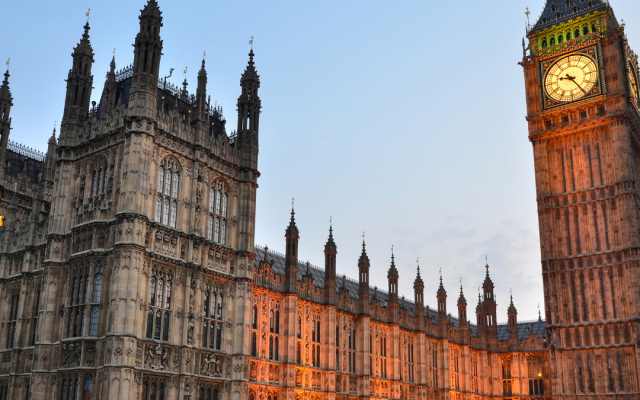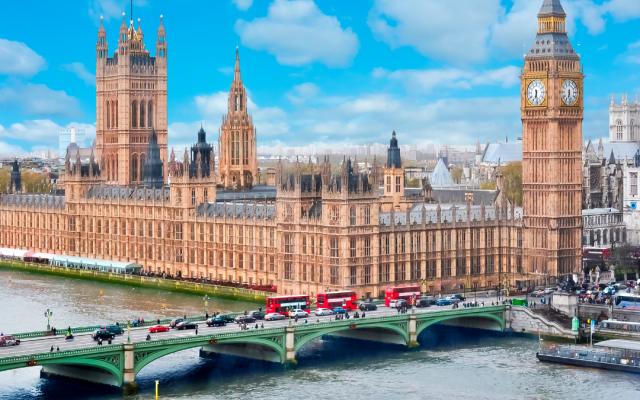Autumn Budget 2024 announcements
Chancellor promises to drive growth and raises £40 billion in taxes

Chancellor Rachel Reeves pledged to ‘invest, invest, invest’ to drive growth and ‘restore economic stability’ in the Autumn Budget.
The Budget, which was Labour’s first in over 14 years and the first ever delivered by a female Chancellor, saw £40 billion in tax announcements.
Ms Reeves repeated her claims that the government had inherited a £22 billion ‘black hole’ in the public finances from the Conservative Party.
Pre-Budget speculation had centred on the likelihood of increases to employers’ National Insurance contributions (NICs), Capital Gains Tax (CGT) and Inheritance Tax (IHT).
The Chancellor announced an increase to the rate of employer NICs by 1.2 percentage points to 15% from 6 April 2025 for disposals from 30 October 2024. However, the Secondary Threshold – the level at which employers become liable to pay NICs on each employee’s salary – will reduce from £9,100 per year to £5,000 per year.
CGT on non-residential assets will increase from 10% to 18% for those paying the lower rate and 20% to 24% for those paying the higher rate. These new rates will match the residential property rates. Business Asset Disposal Relief (BADR) and Investors’ Relief will remain at 10% this year before rising to 14% from April 2025 and 18% from April 2026.
The IHT nil-rate band remains unchanged at £325,000, although from April 2027 inherited pension pots will be brought into the IHT net. The government says this will remove a ‘distortion’ which has led to pensions being used as a tax planning vehicle to transfer wealth rather than their original purpose to fund retirement.
From April 2026, agricultural property relief and business property relief will be reformed. The highest rate of relief will continue at 100% for the first £1 million of combined business and agricultural assets on top of the existing nil-rate bands, fully protecting the majority of businesses and farms. The rate of relief will reduce to 50% after the first £1 million.
The Chancellor also confirmed that VAT will be in on private school fees and abolishment of the non-dom tax regime.
Ms Reeves said she would protect living standards by unfreezing the thresholds on Income Tax and NICs from 2028 while she extended the cut in Fuel Duty for another year.
Ms Reeves said: ‘The choices I have made . . . are the right choices to restore stability to our public finances, to protect working people, to fix our NHS and to rebuild Britain.
‘That does not mean that these choices are easy, but they are responsible.’
The economic picture
Within her Autumn Budget speech, Chancellor Rachel Reeves announced that the UK economy will grow by 1.1% this year, 2% next year and by 1.8% in 2026.
According to the Office for Budget Responsibility (OBR), the government’s official forecaster, inflation is predicted to average 2.5% this year and 2.6% in 2025.
It stated that Budget policies temporarily boost output in the near term, but leave GDP ‘largely unchanged’ in five years.
It also said that Budget policies increase spending by nearly £70 billion a year over the next five years. Half of the increase is funded through tax rises and the other half by a £32 billion a year increase in borrowing.
The OBR stated that borrowing is projected to rise from £122 billion last year to £127 billion this year and is predicted to fall to £71 billion in 2029. Additionally, net debt falls as a share of GDP, from 98.4% this year to 97.1% by the end of the decade.
The political reaction
Addressing the House of Commons, Chancellor Rachel Reeves used the 2024 Autumn Budget to ‘fix the foundations to deliver on the promise of change’.
Ms Reeves continued: ‘This government was given a mandate. To restore stability to our economy, to fix the foundations and deliver change. That is our task, and I know that we can achieve it. My belief in Britain burns brighter than ever.’
Responding to the Chancellor’s speech, Conservative Party Acting Leader Rishi Sunak said that the Autumn Budget ‘contains broken promise after broken promise’.
He continued: ‘The Budget sees the fiscal rules fiddled, borrowing increased by billions of pounds and inflation-busting handouts for the trade unions.
‘This is what happens when the Labour Party is led by people who have no experience of business. Relentlessly talking down our economy, delivering a tidal wave of anti-business regulations, destroying our flexible labour market and raising taxes to the highest level in our country’s history.’
Meanwhile, Carla Denyer, Co-leader of the Green Party, said that the Chancellor delivered ‘a Budget that gives with one hand and takes away with the other’.
The business reaction
Business groups have reacted to Chancellor Rachel Reeves’ Autumn Budget speech.
The Confederation of British Industry (CBI) said that the Chancellor ‘had difficult choices to make to deliver stability for the economy’.
Rain Newton-Smith, Chief Executive of the CBI, commented: ‘A more balanced approach to our fiscal rules which prioritises capital investment should help to unlock private sector investment in our infrastructure and net zero transition over the long-term.
‘While the Corporation Tax Roadmap will help create much needed stability, the hike in National Insurance contributions (NICs) alongside other increases to the employer cost base will increase the burden on business and hit the ability to invest and ultimately make it more expensive to hire people or give pay rises.’
Meanwhile, Shevaun Haviland, Director General of the British Chambers of Commerce (BCC), labelled the fiscal event a ‘tough Budget for business’. She continued: ‘While some protection for smaller firms is welcome, the increase in employer NICs will place a further cost burden on business. This, coupled with a 6.7% increase in the National Living Wage (NLW) means many firms will find it more challenging to invest and recruit in the short-term.
‘But the Chancellor has looked to offset the upfront hit on firms by outlining a longer-term framework to provide stability for the economy.’
The Institute of Directors (IoD) branded the Autumn Budget as offering ‘short-term pain for the business community’. Roger Barker, Director of Policy at the IoD, said: ‘The government has chosen to impose a significant new tax burden on business as a means of achieving an immediate boost to its public sector spending priorities. The risk is that this will exert a negative impact on business confidence, with worrying implications for the economy’s future growth trajectory.’
To get a full overview of the Autumn Budget announcements click here to down our PDF.


